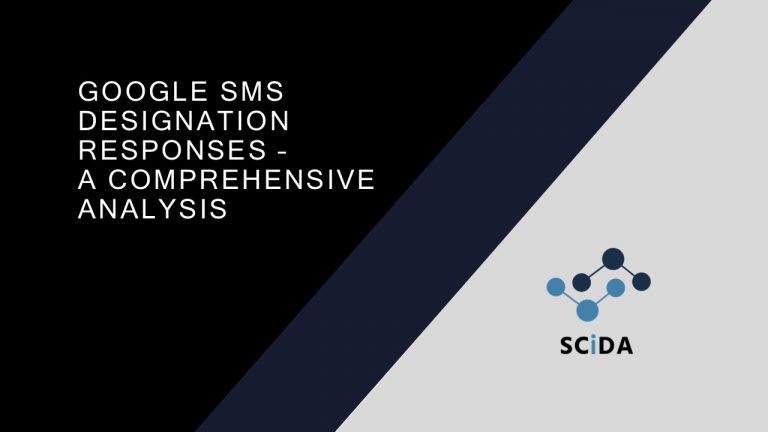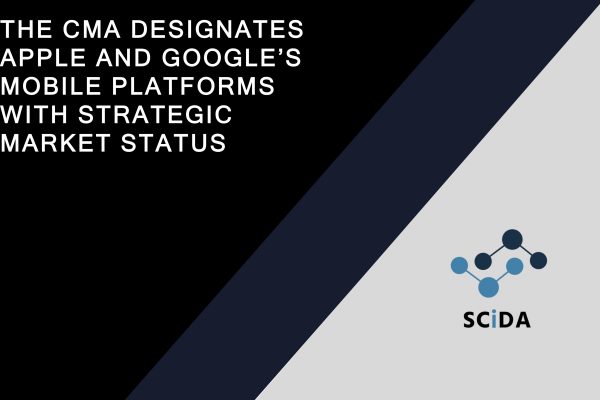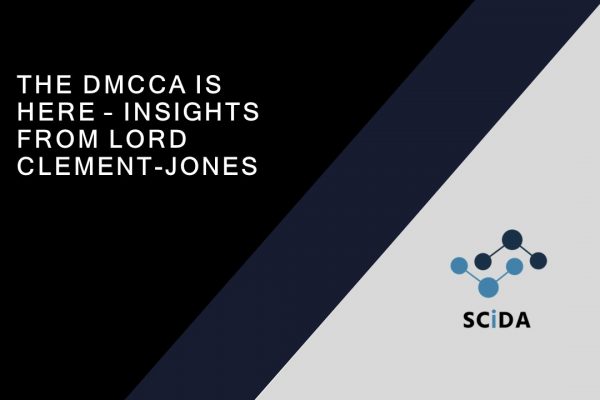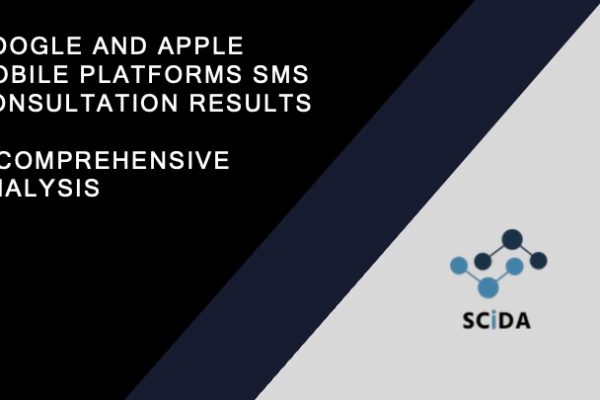by Anush Ganesh
27 Stakeholders Responded to the Google’s proposed SMS designation decision

The Competition and Markets Authority’s consultation on designating Google Search with Strategic Market Status has concluded with one of the first stakeholder responses in the UK’s DMCCA chapter. Twenty-seven organizations ranging from Google itself to independent publishers, airlines to academic institutions have weighed in on a decision that could reshape how search markets operate in the AI era. Anush Ganesh has analysed their responses, revealing not just widespread agreement on Google’s dominance, but fundamental disagreements about how to address it.
The Remarkable Consensus: Nearly Universal Support with Strategic Variations
The consultation’s most striking finding is the near-unanimous support for the SMS designation. Of the 27 respondents, 26 back the CMA’s decision to designate Google Search as having Strategic Market Status. Even Google’s response, while challenging specific aspects of the analysis, does not dispute its market leadership position.


Key Insights from the Response Pattern
Remarkable Consensus: 26 of 27 stakeholders support the SMS designation, with even Google not disputing its market leadership position.
- Publisher Unity: All media organizations and publisher associations provide full support, many demanding expanded scope to include Gemini and Google News.
- Academic Backing: Universities and research institutions uniformly support designation while questioning scope limitations.
- Industry Split: Technology companies generally provide full support, while some industry associations express implementation concerns based on EU experiences.
- Consumer Group Divide: Which? provides full support focusing on consumer harm, while Consumer Choice Center supports but urges caution about intervention timing.
- Travel Sector Complexity: Airlines defend Google Flights while supporting designation; specialized travel platforms document competitive harm from Google’s integrated modules.
Granular breakdown of the responses
This consensus spans remarkably diverse interests. Technology companies like DuckDuckGo and OnFabric support the designation alongside traditional media companies including DMG Media, Guardian Media Group, and the European Publishers Council. Travel companies present a particularly interesting split: airlines like easyJet and Airlines UK support the designation while defending Google Flights functionality, whereas specialized search platforms like Skyscanner and Trainline document significant competitive harm from Google’s travel modules.



Consumer groups also align with the designation, though from different perspectives. Which?, the UK’s consumer champion, emphasizes that Google’s excess profits of £3-4 billion in 2024 mean households may be paying hundreds of pounds extra annually. The Consumer Choice Center, while supporting designation, argues that Google’s popularity stems from beneficial network effects rather than anti-competitive behavior, representing one of the few voices urging caution about immediate intervention.



Academic institutions provide intellectual weight to the consensus. The Knight-Georgetown Institute supports the designation while questioning whether Gemini AI assistant should remain excluded. Yale’s Fiona Scott Morton and colleagues emphasize the urgency of enforcement to protect emerging AI markets from Google’s dominance extension. Columbia University’s team, led by Anya Schiffrin, frames publisher concerns as requiring immediate attention through SMS designation.
Google’s response stands apart not for opposing designation but for challenging the methodology and scope. The company agrees with search designation but disputes the inclusion of search advertising, argues against potential Gemini inclusion (paras 8-11), and provides extensive data on emerging AI competition (paras 34-36). Google points to ChatGPT’s 46 million new downloads in March 2025 (para 35a), Perplexity’s growth to 30 million users (para 35b), and other AI assistants as evidence of genuine competitive constraints the CMA allegedly underestimated.



The most telling aspect of this consensus is what it reveals about the lived experiences of market participants. Companies across sectors from comparison shopping services like Kelkoo and Fruugo to data intermediaries like Gener8, report concrete harms from Google’s dominance. This suggests the CMA’s theoretical analysis aligns with marketplace realities across multiple industries.
The AI Integration Challenge: Where Future Regulation Meets Present Harm
The consultation’s central tension revolves around how to regulate Google’s expansion into AI while addressing current competitive harms. This challenge manifests in two critical areas: scope boundaries and enforcement timing.

Multiple respondents demand expanding the designation’s scope to include Gemini AI Assistant and Google News. The European Publishers Council argues Gemini is functionally identical to AI Overviews and AI Mode, differing only in presentation format. The Guardian Media Group notes users are shifting their search behaviour towards this interface as Google integrates Gemini into mobile ecosystems. The Independent Media Alliance, representing four major publisher associations, makes perhaps the strongest case for comprehensive scope, arguing for unified regulation covering Google Search, Google Discover, Gemini, YouTube, and Reddit to prevent regulatory fragmentation (Sections 2.1 – 2.5).



Publishers provide the most compelling evidence of immediate AI-related harm. DMG Media presents detailed data showing 87-89% declines in click-through rates from AI Overviews (paras 10-12), with penetration rising from 7.5% to 14% in UK mobile searches (para 8). Their submission includes extensive analysis of how YouTube dominates AI Overview citations, suggesting Google’s self-preferencing extends into AI-generated results. The Guardian Media Group documents how publishers can only opt out of AI Overviews by withdrawing from Search entirely, illustrating the bundling strategy that prevents meaningful choice.

The speed of AI development creates a regulatory timing dilemma. Platform Leaders emphasizes the unprecedented inflection point driven by AI, noting technical breakthroughs including reasoning models that have emerged since consultation began. This rapid evolution raises questions about traditional market investigation timescales. Publishers unanimously demand immediate action, with the Public Interest News Foundation (PINF), backed by 27 local news organizations, arguing there should be no delay to redressing the balance between Google and the news industry.


However, implementation experiences from other jurisdictions provide cautionary lessons. UKHospitality reports unintended consequences from the EU Digital Markets Act compliance, including reduced ability for customers to search accommodation by key criteria. Airlines UK similarly notes that DMA implementation has led to less accurate flight search results. These real-world examples suggest hasty implementation can harm the consumer experiences that effective regulation should protect.


The AI integration challenge also reveals different competitive dynamics across sectors. Airlines UK defend Google Flights as providing substantial benefits to users through accurate real-time pricing, while specialized travel platforms like Skyscanner report displacement from Google’s platform and AI overview (pages 3 – 4). This suggests regulatory approaches may need sector-specific calibration rather than uniform application.



Industry associations navigate these tensions differently. The Chamber of Progress emphasizes considering search’s consumer value and warns against rushed publisher pricing interventions. The Center for Data Innovation argues that not regulating chatbots would best support innovation. Conversely, the Movement for an Open Web frames AI as a standalone product requiring immediate regulatory attention to prevent irreparable harm to UK publishers and media plurality.
The technical complexity of AI integration also emerges as a concern. Gener8 focuses on data portability requirements, arguing that formalizing Google’s existing Data Portability API would provide crucial business certainty. DuckDuckGo provides evidence that choice screens alone are insufficient, showing Google’s position has only strengthened from 2018 to 2024 (page 2), despite the presence of a free search engine choice screen on Android since 2021 (page 3).
Strategic Implementation: Balancing Urgency Against Unintended Consequences
The consultation reveals fundamental disagreements about implementation strategy, particularly regarding timing, international coordination, and intervention design. These strategic choices will likely determine whether the UK becomes a leader in AI-era digital market regulation or follows patterns established elsewhere.
The most significant strategic divide concerns enforcement urgency versus comprehensive coordination. Publishers form the strongest pro-urgency coalition, demanding that fair payment terms be upgraded from Category 2 to Category 1 for immediate implementation. DMG Media provides extensive documentation of ‘AI Overviews’ rapid rollout and traffic impact, arguing that delay allows irreversible harm to media plurality (paras 47 and 61). The Independent Media Alliance presents perhaps the most comprehensive technical recommendations, proposing specific data disclosure requirements and complaints mechanisms that could be implemented immediately.


Academic voices largely support urgent action but with different emphases. Scott Morton’s team warns that waiting for US enforcement creates problems since American rules would be limited to US markets with different legal frameworks. The Knight-Georgetown Institute advocates moving delayed interventions into Category 1 (pages 8-9), including distribution restrictions and data sharing requirements. This academic support provides further support to publisher demands for immediate action.

However, implementation complexity advocates urge caution about rushing interventions. Samsung notes that their full assessment depends on upcoming Mobile Ecosystem SMS investigation decisions due to service interrelationships (para 2). This position reflects concerns that fragmenting Google’s ecosystem regulation across multiple investigations could create gaps or contradictions. UKHospitality’s EU experience reinforces these concerns, demonstrating that well-intentioned interventions can produce unintended consequences that harm the consumers they aimed to protect.


International coordination presents another strategic choice point. Some respondents advocate UK leadership in AI-era regulation. Platform Leaders argues for creating the first regulatory framework truly designed for the AI era with adaptive mechanisms for rapid technological change. DuckDuckGo urges independent action rather than waiting for US enforcement outcomes (page 1), providing evidence that EU choice screen effectiveness improved significantly with proper design and implementation (pages 3 – 4).
Conversely, other respondents emphasize learning from international experiences. The Chamber of Progress suggests coordination with government AI and copyright consultations to avoid overlapping or contradictory requirements. Airlines UK and UKHospitality both reference EU implementation problems as reasons for careful design rather than speed. These positions reflect concerns that first-mover disadvantage could harm UK competitiveness if interventions prove counterproductive.
The intervention design philosophy also varies significantly across respondents. Consumer groups like Which? emphasize quantifiable consumer harms, noting the £3-4 billion excess profits translate to hundreds of pounds annually per household. This consumer welfare focus suggests interventions should prioritize price effects and choice expansion. Conversely, the Consumer Choice Center argues that user preferences for consolidated data experiences and personalized ads should inform intervention design, suggesting that theoretical competition benefits may not align with actual consumer desires.


Technical implementation details reveal additional strategic choices. DuckDuckGo provides extensive evidence on choice screen effectiveness, showing 40-89% improvement in alternative selections when Google isn’t positioned advantageously (page 3). However, they also document ongoing anti-competitive practices like Chrome’s ‘change back to Google Search?’ popup that costs them 50% of extension users. This suggests that effective implementation requires addressing both formal compliance and subtle undermining behaviors.

The precedent-setting nature of this decision adds weight to these strategic choices. Google notes this is the first DMCR investigation and will set important precedents for future cases (para 47). Multiple respondents emphasize that design choices that might seem technical such as how to handle AI integration or international coordination could influence global regulatory approaches. This precedent dimension suggests the CMA’s decisions will resonate far beyond the immediate Google case.
The 27 stakeholder responses provide the CMA with unprecedented insight into these strategic trade-offs while revealing a market ecosystem under severe stress from technological change and competitive imbalance. The unanimous support for SMS designation gives the regulator a strong mandate for action. The challenge now lies in translating that consensus into effective, future-proof remedies that can address immediate competitive harms while adapting to the rapid pace of AI-driven market transformation. The decisions made in this consultation will likely determine not just Google’s future in the UK market, but the broader trajectory of digital market regulation in the AI era.
Below you can find all 27 stakeholder responses collated together in a tabular form
Total Respondents: 27
Full Support: 20 organizations (74%)
Support with Reservations: 6 organizations (22%)
Opposition: 0 organizations (0%)
Anonymous: 1 organization (4%)
Stakeholder Responses to Google SMS Designation
Full Support (20 organizations)
These stakeholders fully support the SMS designation with no major reservations
| Organization | Type | Key Position |
| DuckDuckGo | Technology Company | Supports designation; emphasizes choice screens are important |
| OnFabric | Technology Company | Welcomes decision |
| DMG Media (Daily Mail, i Paper and others) | Media/Publisher | Supports designation; wants Gemini included and quick AI action |
| Guardian Media Group | Media/Publisher | Accepts designation; wants Gemini and Google News included |
| European Publishers Council | Publisher Association | Welcomes decision; wants Gemini and Google News included |
| Public Interest News Foundation | News Foundation | Welcomes decision; urges no delay in rebalancing platform-publisher relationships |
| Independent Media Alliance | Publisher Association | Supports comprehensive scope expansion |
| Columbia University Team (led by Anya Schiffrin) | Academic | Publisher concerns alleviated through designation |
| Knight-Georgetown Institute | Academic | Supports decision; questions Gemini exclusion |
| Yale Team (led by Fiona Scott Morton) | Academic | Welcomes decision; urges Gemini designation for AI market competition |
| Movement for an Open Web | Industry Association | AI is standalone product; failure to act is harmful |
| Platform Leaders | Industry Association | Broadly supports most decisions |
| Fruugo | Comparison Shopping Service | Accepts designation; wants CSS clarity |
| Kelkoo Group | Comparison Shopping Service | Welcomes designation; questions CSS market definition |
| Gener8 | Data Intermediary | Supports designation; emphasizes data portability importance |
| Skyscanner | Travel Platform | Welcomes decision; asks for search type clarity |
| Trainline | Travel Platform | Welcomes decision; AI inclusion would help |
| easyJet | Airline | Supports designation while defending Google Flights benefits |
| Which? | Consumer Group | Accepts whole decision including Gemini exclusion |
| Samsung | Technology Company | Welcomes decision |
Support with Reservations (6 organizations)
These stakeholders support the designation but raise significant concerns or caveats
| Organization | Type | Key Reservations |
| Platform | Agrees with search designation but disputes search ads inclusion; opposes Gemini inclusion; challenges methodology | |
| Consumer Choice Center | Consumer Group | Supports designation but argues Google’s popularity stems from beneficial network effects; urges caution about immediate intervention |
| Airlines UK | Industry Association | Supports designation but cites negative DMA implementation experiences; defends Google Flights functionality |
| UKHospitality | Industry Association | Supports designation but highlights “unintended consequences” from EU DMA compliance |
| Chamber of Progress | Industry Association | Supports designation but emphasizes search’s consumer value; warns against rushed publisher interventions |
| Center for Data Innovation | Think Tank | Supports designation but argues not regulating chatbots would best support innovation |





